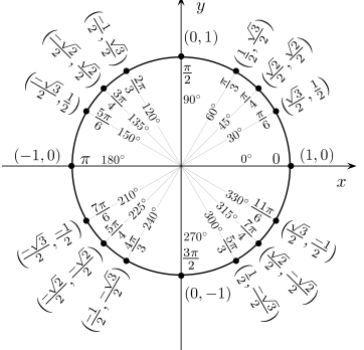Question
Question: How do you evaluate \(\text{arccos}\left( \dfrac{1}{2} \right)\) without a calculator?...
How do you evaluate arccos(21) without a calculator?
Solution
In the problem we need to calculate the value of angle where the cos trigonometric ratio gives the value 21. For this we will assume the given value to a variable let’s say x. Now we will apply the cos trigonometric function on both sides of the equation. Now we will apply the exponential rules and calculate the value of cosx. After getting the value of cosx we will observe the trigonometric circle and we will write the required result.
Complete step by step solution:
Given that, arccos(21).
Arc is the function which is normally represented by an inverse function. So, we can write arccos(21) as cos−1(21).
Let us assume the above value with a variable say x. Then we can write
x=cos−1(21)
Applying the cos trigonometric function on both sides of the above equation, then we will get
cosx=cos(cos−1(21))
We know that when we multiply an inverse function to the original function then we will get unity as a result. Now the above equation is modified as
cosx=21
From the trigonometric circle which is shown below, we can write the value of x as 60∘.

Hence the final value of arccos(21) is 60∘.
Additional Information:
From the above-mentioned trigonometric circle we can find any trigonometric ratio value for the given angle by using the basic trigonometric formulas like
tanx=cosxsinx, secx=cosx1, cscx=sinx1, cotx=tanx1
Note:
In the question they have asked to don’t use the calculator because if you used the calculator to find the value, then we will get the solution in a single step which is not advisable in any examinations.
